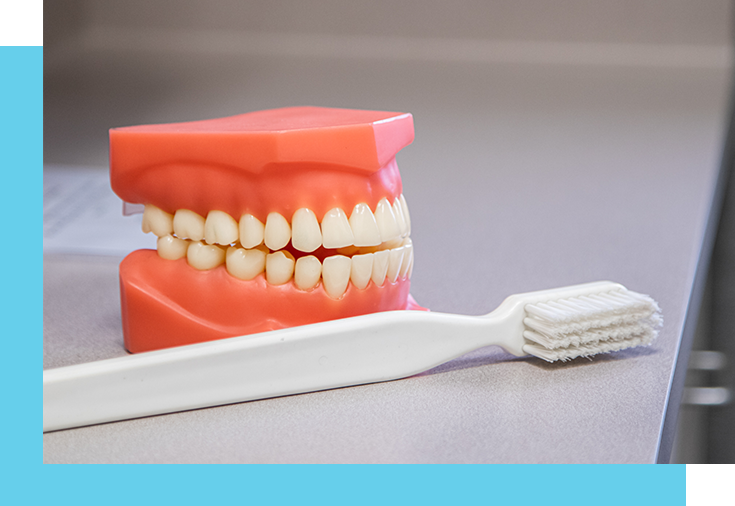6 Must-Know Denture Care Tips
Follow these steps to keep your dentures clean and healthy while avoiding common problems.
1. Clean Dentures Daily
Just like natural teeth, dentures need to be brushed daily to remove food particles and bacteria.
When brushing use a soft-bristled toothbrush or denture brush to gently scrub the surface of the
dentures, being careful not to damage the plastic or bend the metal attachments. You can use
toothpaste specifically designed for dentures, or a mild hand soap or dish detergent. Avoid using
toothpaste with abrasive particles, so as not to scratch the surface of the dentures.
2. Soak Dentures Overnight
Dentures should be soaked in a denture-cleaning solution or warm water every night. This helps to
keep the dentures clean and prevent them from drying out and becoming brittle. Be sure to use a
cleaning solution specifically designed for soaking dentures, and follow the manufacturer's
instructions for the recommended soaking time. You can also use white vinegar or mouthwash as a
soaking solution, but avoid using bleach.
3. Rinse Dentures After Eating
After eating, it's important to rinse your dentures thoroughly to remove food particles and bacteria.
Rinsing helps prevent staining and bad breath. Be sure to use nothing warmer than lukewarm water
when rinsing, as hot water can dentures to warp and lose their shape.
4. Handle Dentures Carefully
Dentures are delicate and can break easily if dropped or mishandled. When handling your dentures,
hold them over a soft surface, such as a towel or a sink filled with water to be safe.
5. Visit the Dentist Regularly
It's important to visit your dentist for regular check-ups, even if you have dentures. Your dentist
will check how your dentures are fitting and make any necessary adjustments to ensure that they are
comfortable and functioning properly. Your dentist can also help to identify any problems, such as
staining, wear, or damage, and recommend the best course of action to restore your dentures.
6. Avoid Certain Foods
While wearing dentures, you should avoid foods that make chewing difficult or cause the dentures to
come loose. These foods include sticky or chewy foods, such as caramel or gum, and hard or crunchy
foods, such as nuts or popcorn. It's also a good idea to avoid foods that are very hot or very cold,
as these can cause the dentures to expand or contract, leading to potential discomfort.

